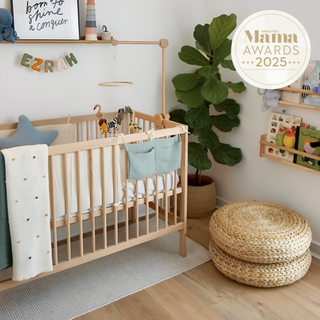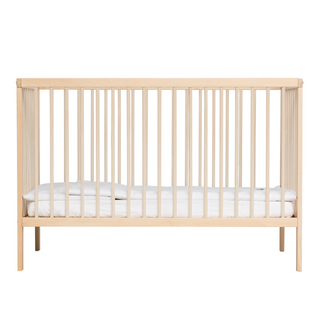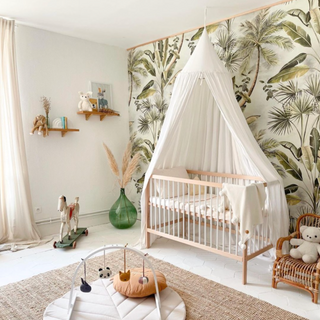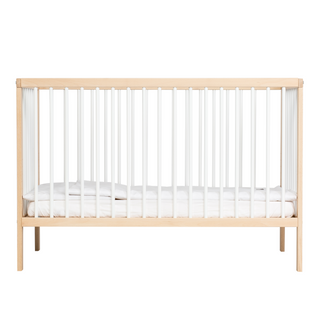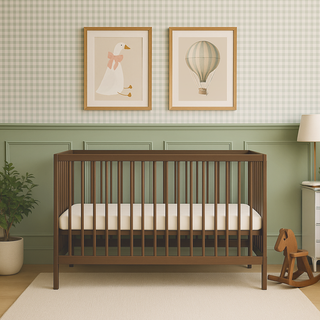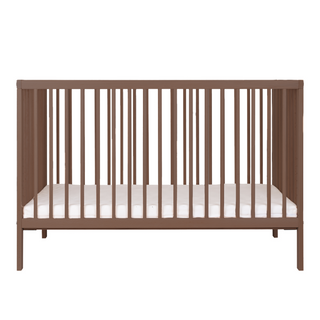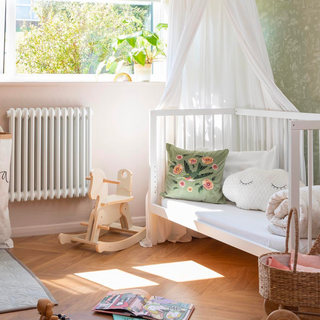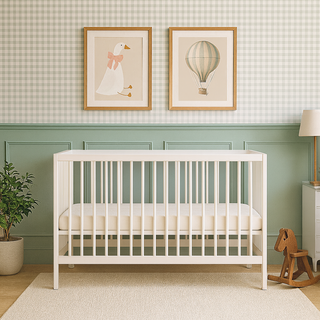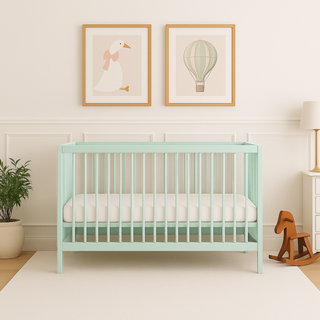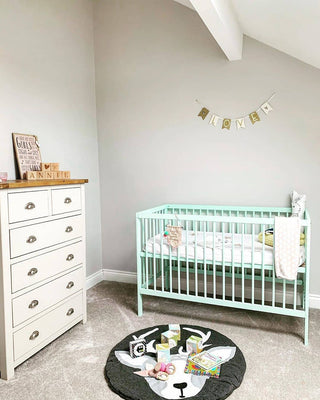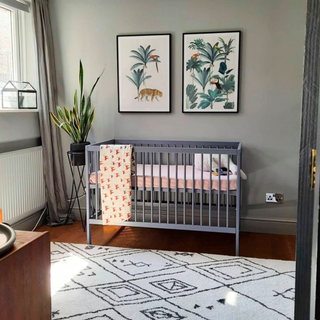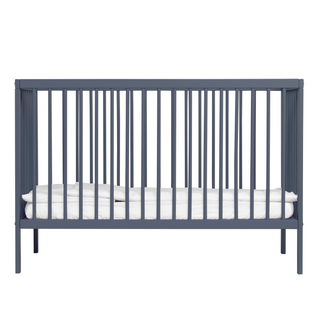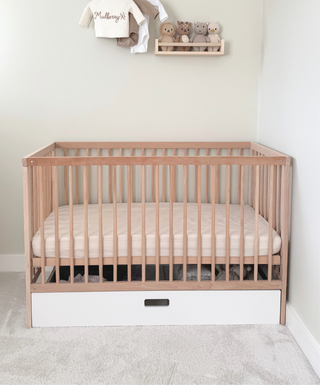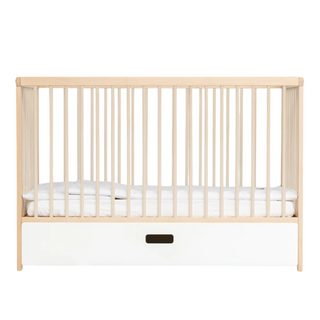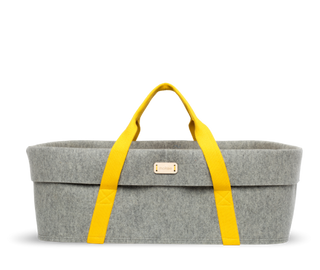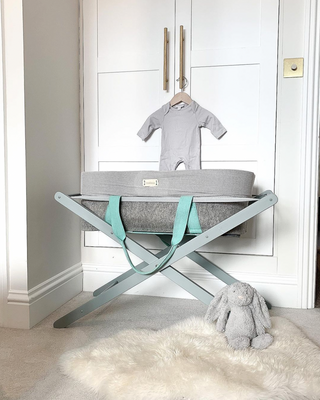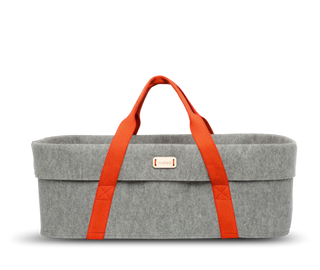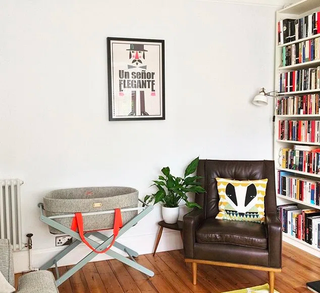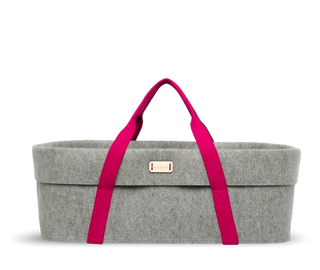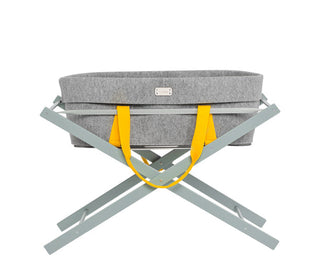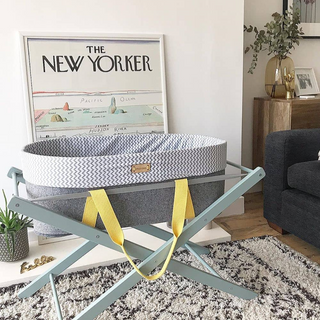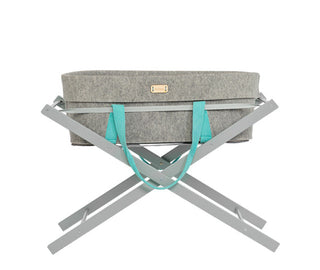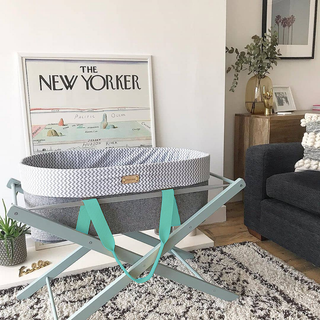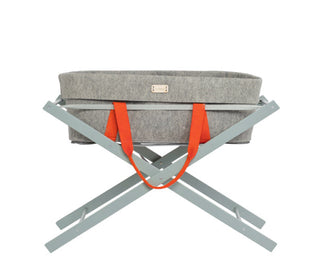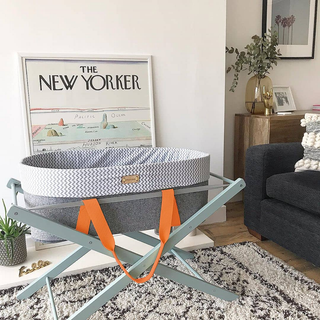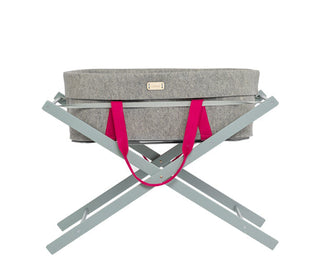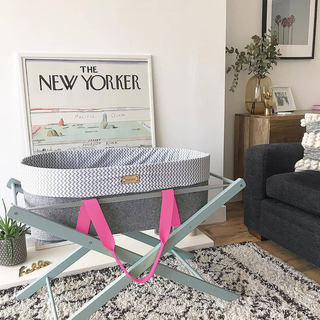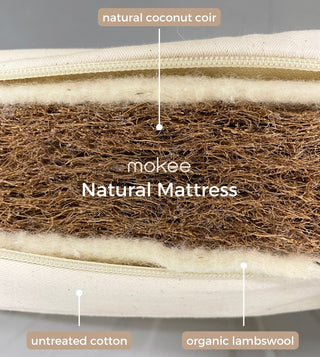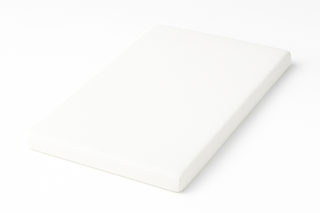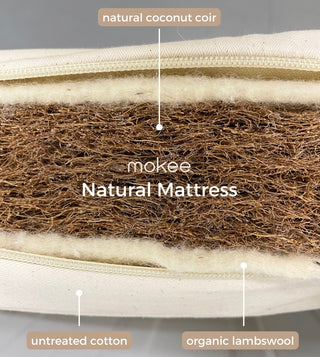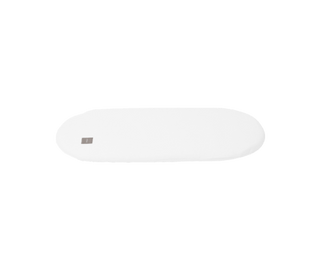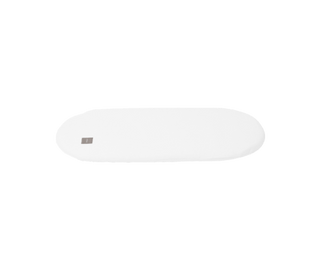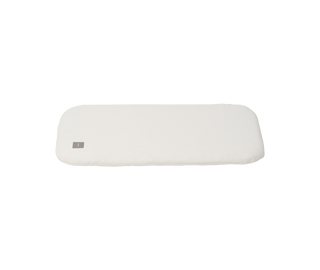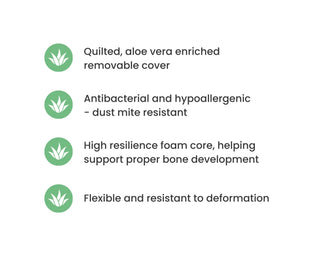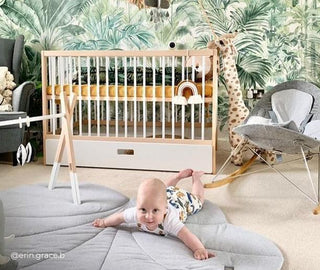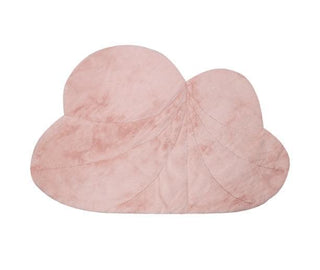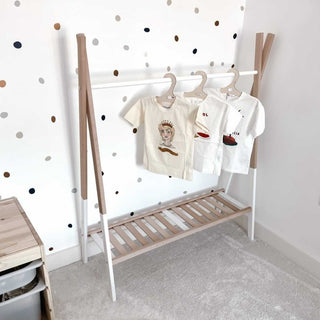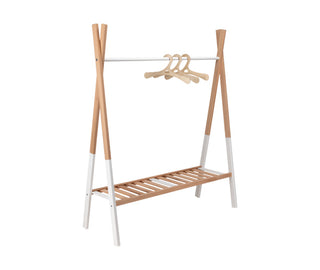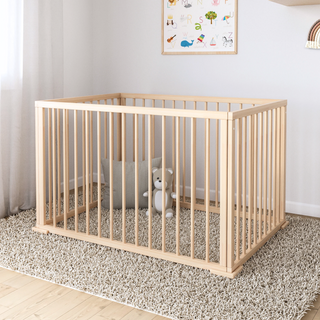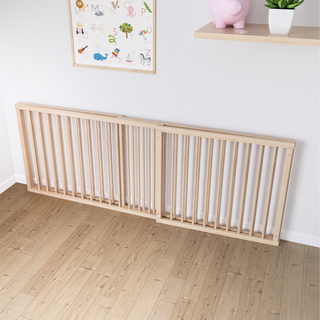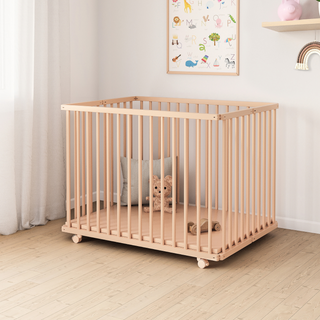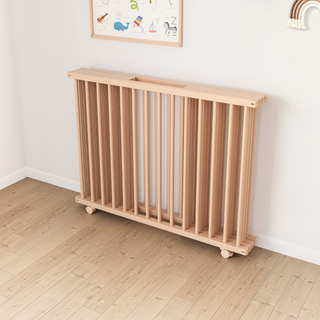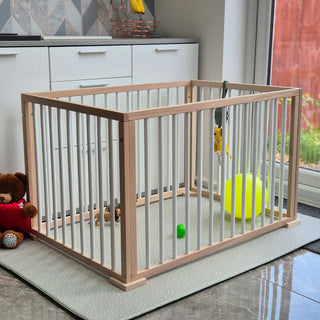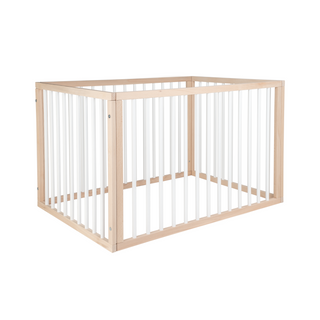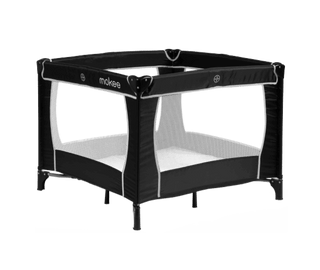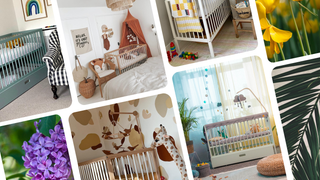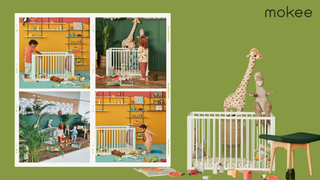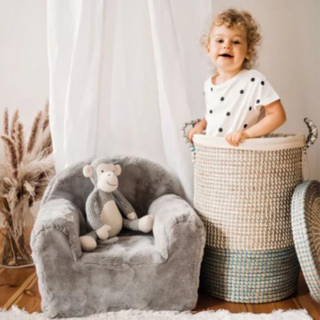
When it comes to designing your baby’s nursery, the materials you choose play a huge role in their health, safety, and comfort. From the cot to the mattress, opting for natural materials can create a healthier environment for your little one. Let’s explore why a natural nursery is worth considering and how it benefits your baby.
Why Choose Natural Materials?
Babies are more vulnerable to toxins and chemicals than adults, so creating a safe, natural space is essential. Here’s why natural materials are a better choice:
-
No Harmful Chemicals: Many synthetic materials, like engineered wood or certain foams, can release VOCs (volatile organic compounds)—harmful fumes that can affect air quality and your baby’s health. Natural materials, on the other hand, are free from these toxins.
-
Breathability: Natural fibres like cotton, wool, and wood allow air to circulate, reducing the risk of overheating and creating a more comfortable sleep environment.
-
Durability: Natural materials, such as solid wood or organic fibres, are often more durable and long-lasting than their synthetic counterparts.
-
Eco-Friendly: Choosing natural materials is better for the planet, as they’re renewable, biodegradable, and often produced using sustainable practices.
Natural Wood vs. Engineered Wood

One of the biggest decisions when creating a nursery is choosing the right furniture. Here’s why natural wood is the safer, healthier option:
-
Natural Wood: Solid wood, like beechwood or pinewood, is free from chemicals and VOCs. It’s sturdy, durable, and resistant to wear and tear, making it a great choice for cots and furniture. Plus, it’s a timeless material that can be passed down through generations.
-
Engineered Wood: Materials like MDF or chipboard are often made using adhesives and finishes that release VOCs. These fumes can linger in the nursery and have a negative impact on your babies health. Engineered wood is also more prone to damage and doesn’t last as long as solid wood.
If you’re looking for a truly natural option, consider our natural beechwood cotbeds. They're natural, free from paints or finishes, and bring a beautiful, organic aesthetic to the nursery.
The Benefits of a Natural Mattress

Your baby will spend a significant amount of time sleeping, so choosing the right mattress is crucial. A natural mattress offers several benefits:
-
Non-Toxic Materials: Natural mattresses are made from materials like organic cotton, wool, and coconut fibre, which are free from harmful chemicals and synthetic additives.
-
Hypoallergenic: Natural fibres are less likely to trigger allergies or irritate sensitive skin, making them ideal for babies.
-
Naturally fire retardant: Wool and coconut fibre are both naturally fire retardant. This keeps your baby safe without the need for added fire retardant chemicals.
-
Breathable: Materials like coconut fibre and wool allow air to circulate, helping to regulate your baby’s temperature and reduce the risk of overheating.
-
Firm and Supportive: Natural mattresses are known for being extra firm and everything your baby needs for safe sleep and proper spinal development.
For example, a natural cot bed mattress made with coconut fibre and organic cotton offers a safe, breathable, and supportive sleep surface. It’s a great choice for parents looking to create a healthier nursery environment.
Tips for Creating a Natural Nursery
-
Choose Solid Wood Furniture: Opt for cots, dressers, and shelves made from solid wood, like beechwood, to avoid chemicals and ensure durability.
-
Use Natural Bedding: Look for organic cotton or wool bedding to keep your baby comfortable and safe.
-
Add a Natural Mattress: Invest in a mattress made from natural materials like coconut fibre, wool, and organic cotton.
-
Avoid Synthetic Rugs and Curtains: Choose natural fibre rugs and curtains to reduce exposure to synthetic materials which are more flammable and irritable to the skin.
-
Keep It Simple: Avoid overloading the nursery with unnecessary items. A minimalist approach makes it easier to maintain a clean, toxin-free space.
Final Thoughts
Creating a natural nursery isn’t just about aesthetics—it’s about prioritising your baby’s health and safety. By choosing natural materials like solid wood furniture and natural mattresses, you can reduce your baby’s exposure to harmful chemicals and create a healthier, more comfortable environment for them to grow and thrive.
For more tips on designing a safe nursery, explore our guides on how to choose the best cotbed and how to choose the best cot mattress.
If you have any questions or need help creating the perfect nursery, feel free to reach out tlc@mokee.eu. We’re here to help!
Love,
The Mokee Team 💛




